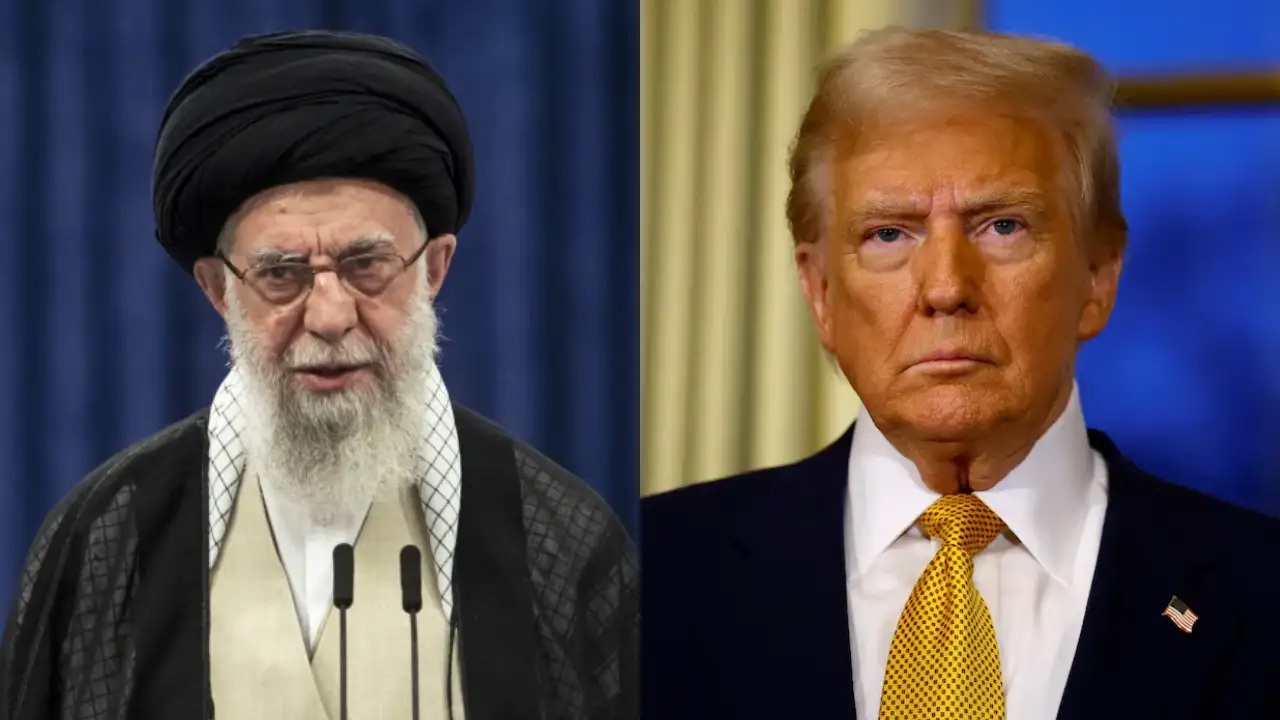Iran’s supreme leader, Ayatollah Ali Khamenei, on Wednesday, June 18, 2025, firmly rejected U.S. demands for surrender and issued a stern warning that any military involvement by Washington in the ongoing conflict would result in “irreparable damage.”
His remarks followed escalating threats from Israel and its directive for civilians to evacuate a district in Tehran amid increasing tensions.
Speaking publicly for the first time since Friday, Khamenei condemned Israel’s decision to initiate the conflict, calling it a “huge mistake.”
In a statement broadcast on state television, he emphasized that Iran would not be intimidated by external threats.
“People who understand Iran and its historical resilience would never speak to it in the language of threats,” the statement read.
He added that any military move by the U.S. would carry serious consequences.
Reports from U.S. intelligence, cited by the New York Times, revealed that Tehran had readied missiles and other military hardware in preparation to target American bases in the region should Washington become directly involved.
Amid the intensifying crisis, U.S. President Donald Trump expressed growing frustration.
On Truth Social, he posted a blunt two-word message demanding Iran’s capitulation: “UNCONDITIONAL SURRENDER!”
Although the Trump administration initially distanced itself from Israel’s actions, it has recently escalated its rhetoric and increased its military presence in the Middle East.
A central concern in the calls for U.S. involvement has been Iran’s Fordow nuclear facility.
Both Israeli defense officials and nuclear experts argue that while most nuclear facilities could be restored within months if damaged, a successful strike on Fordow would deal a severe long-term blow to Iran’s nuclear ambitions.
The facility, located deep beneath a mountain near Qom, is fortified to withstand all but the most powerful bunker-busting bombs, munitions only the U.S. B-2 bomber is capable of delivering.
Israel’s national security adviser, Tzachi Hanegbi, stressed that the current military campaign was entirely led by Israel.
However, he stated in an interview with Channel 12 that the war “will not end without damaging Fordow.”
Should the U.S. choose not to join the effort, Israel would be left with fewer but riskier options, including sending special operations forces on a ground mission or targeting critical infrastructure such as power systems to disable the facility.
The conflict has drawn international attention and concern. Russia and China have both issued warnings about potential escalation.
Russian deputy foreign minister Sergei Ryabkov cautioned the U.S. against considering “speculative options” for involvement.
He warned that such actions would significantly destabilize the region, according to Interfax.
Chinese President Xi Jinping echoed those concerns, expressing alarm over the sudden spike in tensions due to Israel’s military operations.
Turkey also weighed in, with President Recep Tayyip Erdoğan defending Iran’s right to retaliate, calling Israel’s actions “thuggery and state terrorism.”
He criticized the timing of the attacks, noting that diplomatic negotiations were still ongoing when Israel chose to escalate militarily.
Meanwhile, on the sixth consecutive night of hostilities, Israel launched airstrikes against a facility that produces uranium centrifuges, a missile component factory, and five attack helicopters.
Iran’s military, while heavily impacted, has not been fully neutralized.
Despite Israeli claims of air superiority over western Iran and Tehran, Iranian forces managed to shoot down a sophisticated Israeli drone.
Iran also retaliated by launching 15 missiles at Israel overnight.
The International Atomic Energy Agency (IAEA) confirmed that two Iranian centrifuge production sites were hit by Israeli airstrikes, one within Tehran and another in a nearby city.
In a social media update, the IAEA detailed the damage: “At the Tehran site, one building was hit where advanced centrifuge rotors were manufactured and tested.
At Karaj, two buildings were destroyed where different centrifuge components were manufactured.”
As the situation escalates, the likelihood of broader regional involvement continues to grow, with global powers urging restraint while Israel and Iran push further into open conflict.







